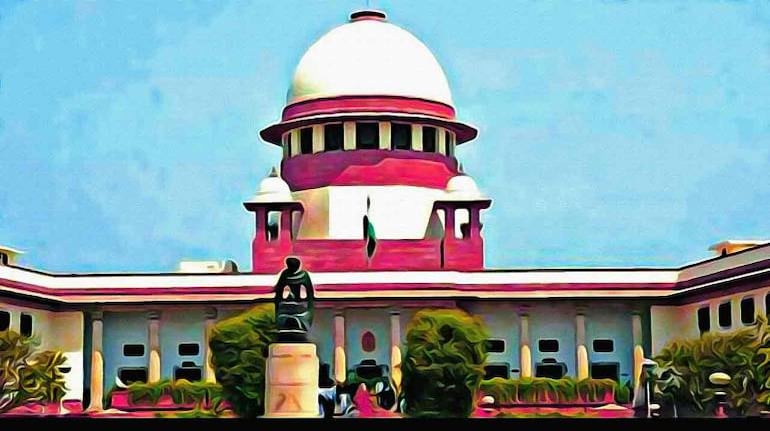



A joint petition seeking review of the Supreme Court of India (SC)’s verdict in the Ram Janmabhoomi-Babri Masjid title dispute case, has been filed by 40 persons belonging to different faiths.
The petitioners feel that the apex court's verdict has violated the secular principles of the Constitution that it sought to uphold by giving ownership of the disputed land in Ayodhya, Uttar Pradesh to the Hindu parties for construction of the Ram Temple and giving Muslim parties with a “poor compensation” of a plot elsewhere.
On November 9, a five-judge bench, headed by the then Chief Justice of India (CJI) Ranjan Gogoi, had in a unanimous verdict ruled that the 2.7 acre disputed was to be given to deity 'Ram Lalla'. The apex court also directed the Centre to allot a five-acre plot in Ayodhya to the Uttar Pradesh Sunni Waqf Board for building a mosque.
In a plea filed through senior advocate Prashant Bhushan, the petitioners, including Hindu, Muslim, Sikh, Christian, Buddhist, Jain, have said they are "deeply aggrieved" by the verdict passed by the apex court.
"The petitioners in this review petition, belong to various Indian faith traditions (including Hindu, Muslim, Sikh, Christian, Buddhist, Jain, apart from people with atheist and agnostic convictions), and are bound by their shared profound commitment to the morality of the Indian Constitution," it said.
The petitioners include historian Irfan Habib, economist and political commentator Prabhat Patnaik, activists Harsh Mander, Nandini Sundar and John Dayal.
The plea also states that "the apex court's verdict has violated the same secular principles of the Constitution that it sought to uphold, by choosing to give exclusive ownership of the disputed land to the Hindu parties, for building of the Ram Temple, while rewarding the Muslim parties with a poor compensation of a plot of land admeasuring five acres elsewhere".
It has sought a full bench for hearing the review plea saying it is not merely a title dispute but a "contestation about the core of India's constitutional morality, and the principles of equal citizenship, secularism, justice, rule of law and fraternity".
In a separate plea, Akhil Bharat Hindu Mahasabha (ABHM), a litigant in the land dispute case, moved the Supreme Court on December 9 against the direction to allot a five-acre plot to the Sunni Waqf Board.
Seeking a "limited review" of the apex court's November 9 verdict, ABHM became the first Hindu body to seek a review. It has also sought deletion of findings declaring the disputed structure as a Mosque.
Earlier on December 6, six petitions were filed in the apex court seeking review of its November 9 judgement.
While five pleas were filed by Maulana Mufti Hasbullah, Moulana Mahfoozur Rehman, Mishbahuddin, Mohd Umar and Haji Nahboob, who are all supported by the All India Muslim Personal Law Board (AIMPLB), the sixth one has been filed by Mohammad Ayub.
The first plea seeking review of Ayodhya verdict was filed in the apex court was filed on December 2 by Maulana Syed Ashhad Rashidi, legal heir of original litigant M Siddiq and also the Uttar Pradesh president of the Jamiat Ulama-e-Hind.
(With inputs from PTI)
Discover the latest Business News, Sensex, and Nifty updates. Obtain Personal Finance insights, tax queries, and expert opinions on Moneycontrol or download the Moneycontrol App to stay updated!
Find the best of Al News in one place, specially curated for you every weekend.
Stay on top of the latest tech trends and biggest startup news.